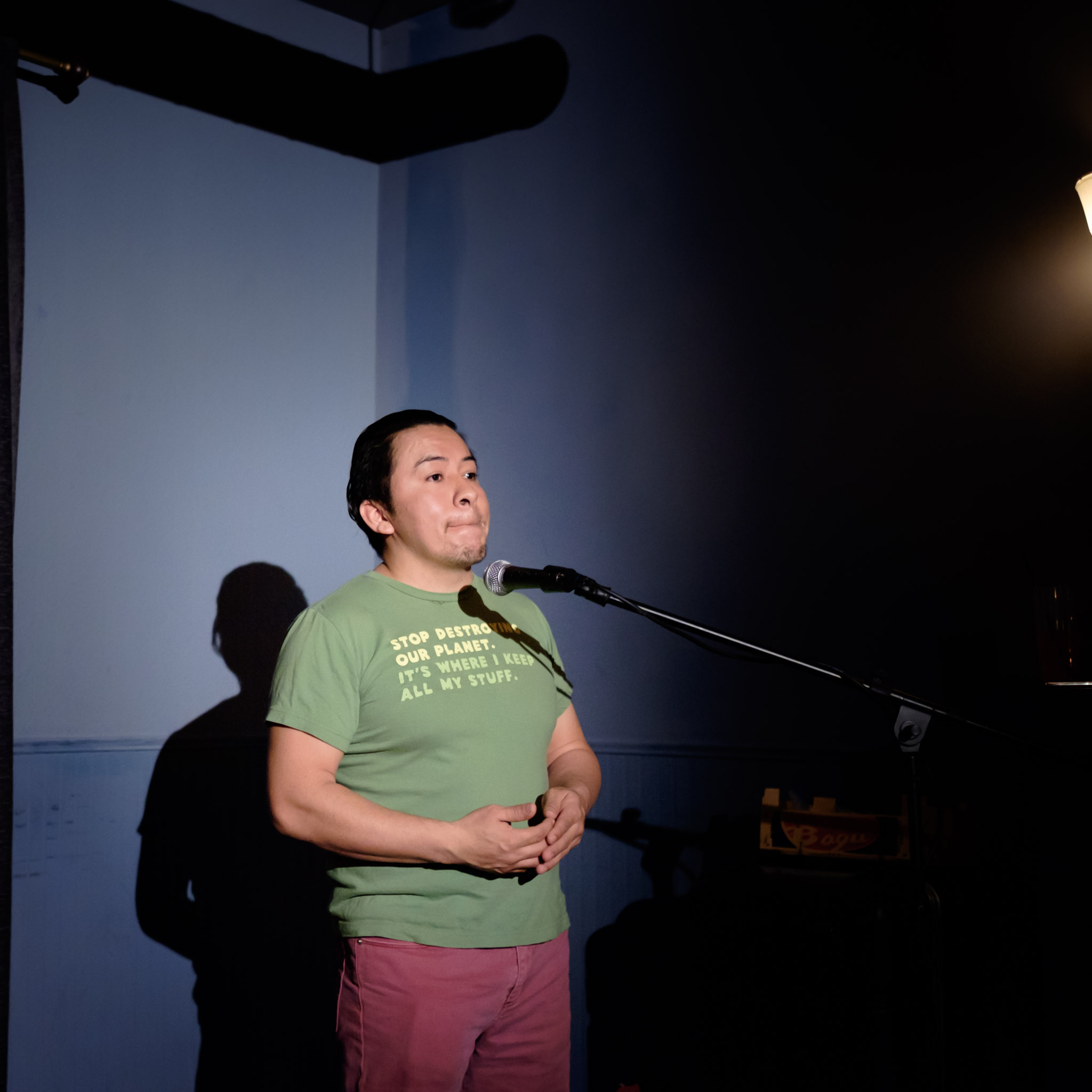Here are the tips we share with everybody who tells a story at Gilead. With thanks to the many organizations and people we've learned from, like 2nd Story, The Moth, and folks including Scott Whitehair, Maria Vorhis, and so many others.
These are just a few basic rules of thumb (and there are always good reasons to break rules, so feel free). Especially if this is your first story, think about how these might help give shape and stakes to your story, take what's helpful, and ignore the rest.
Tips/things to consider as you prepare:
We’re looking for 3 - 5 minute stories. Usually 650 words is about 5 minutes but the only way to know is to time yourself, and be honest.
Think in terms of scenes: distinct locations where something happens. Scenes distinguish a story from an essay, or op-ed, or sermon. Let your audience do the meaning-making. Guide them to it, with your edits and presentation, but don't unpack it for them too much.
Write/craft your story to be delivered, not just read.
Start in the action and set up the stakes:
Cheryl Strayed’s book Wild, about hiking the Pacific Crest Trail, begins not with her buying a map, or all the events that led up to the hike, but instead, 38 days into the hike, just after one of her hiking boots has fallen irretrievably down a ridge.
Use dialogue as much as possible, especially to tell the audience things that would otherwise be exposition.
Count on your voice and delivery to do the adjectival heavy-lifting. No need to say, "he stammered..." if you can deliver it, "H-he-hello!" And you don’t need adverbs! Really! Basically none!
Make you the main character. This is about you: a true story as you experienced it. And you can leave out anything you don't want to share or that doesn’t serve your story. No one is going to fact-check you.
Think about what your story is about (themes), beyond what happens (plot, facts). This helps keep you stream lined and edit out the stuff that may be good, but isn't necessary.

